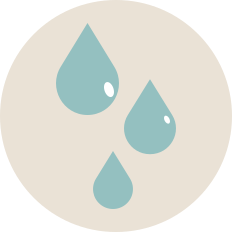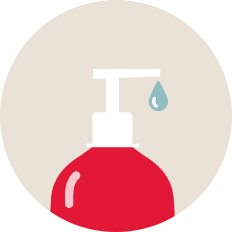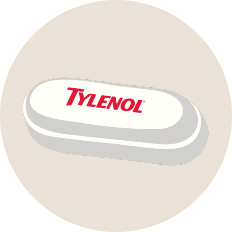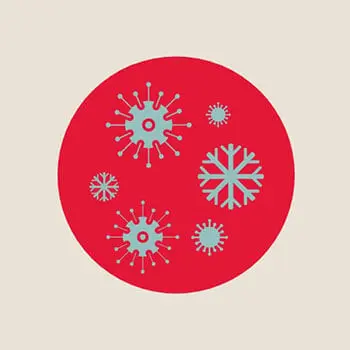If you’ve been feeling crummy, with a cough and chest discomfort, you might be dealing with a seasonal ailment like the flu or a cold. While these two nasty infections can seem pretty similar, they are actually distinct illnesses, with different causes and different solutions. If you or a loved one is under the weather, it might be helpful to identify which respiratory issue you’re dealing with. That way, you can attend to the symptoms directly, recover, and move on with your life. As always talk to your doctor if you have specific questions or concerns about your symptoms.
What is a cold?
The common cold is an infection of the nose, sinuses, throat, and windpipe. A cold is caused by a underlying virus, though the specific virus will vary, as over 200 different viruses are known to cause colds.[1]
Colds are contagious upper respiratory infections that can spread easily, especially within a household, and typically last between 7 and 10 days. Symptoms develop gradually over the course of two or three days, meaning you might not realize you are getting sick at first. While uncomfortable, most colds resolve on their own.[2]
What are the symptoms of the common cold?[2,3]
Common symptoms include:
Cough
Stuffy, runny nose
Scratchy or sore throat
Sneezing
Chest congestion
Other frequent symptoms of a cold include:
Headache
Low-grade fever
Body or muscle aches
Fatigue
What is the flu?
Flu is a contagious respiratory illness caused by influenza viruses. The flu can come on quite quickly, within two to three days after coming into contact with a contagious person, and symptoms typically subside within a few days to two weeks. Most people with the flu will get better on their own with proper rest, though occasionally flu can lead to more severe complications.[4]
You are most likely to contract the flu during annual “flu season” which, in the northern hemisphere, runs roughly from October to May. And while flu is highly contagious, you can decrease your chances of getting the flu (or prevent more severe symptoms) but getting a flu vaccine once a year.[4] Learn more if TYLENOL® is right for you after a vaccination.
What are the symptoms of Influenza?[4,5]
Symptoms of flu come on pretty quickly, usually within 2-3 days of coming into contact with a person who carries the virus. Fever and chills are typically the first signs. The most common influenza symptoms include:
Headache
Fever
Chills
Cough
Body or muscle aches
Fatigue
Chest congestion
Less frequent symptoms of the flu include:
Runny or stuffy nose
Sore throat
Diarrhea or vomiting
Sneezing
Similarities between the common cold and the flu
Both colds and flu are considered upper respiratory infections of the nose, sinuses, and throat. Symptoms can be similar, so keep an eye on what’s bothering you most. Still, the two illnesses can present in such similar ways that it may be hard to differentiate without a special test.[3]
Some of the most common symptoms that can present in either flu or cold include aches, fatigue, sneezing, runny or stuffy nose, chest discomfort or cough, and sore throat. Both illnesses are contagious through contact with a person carrying the virus.[3]
Difference between the common cold and the flu
One major difference is the onset of symptoms; while colds can come on gradually over the course of days, flu usually comes on abruptly.
Additionally, consider the difference between flu vs cold symptoms. You’re more likely to develop fever and body chills with flu than you are with a common cold.[2,3]
When it comes down to influenza vs cold, symptoms of cold are usually milder than symptoms of flu, though cases vary. Moreover, colds do not generally result in serious health problems. Flu, on the other hand, can lead to severe illness for people with underlying health conditions like asthma, a history of heart disease and diabetes.[6] Examine the comparison chart below for a deeper look at the common cold vs flu.
Cold vs Flu Symptom Comparison Chart
The above chart is a general outline of flu vs cold symptoms and indications, though each case varies, as both cold and flu are caused by a wide variety of viruses.
How to treat the flu or a common cold
The good news is most cases of both flu and common cold resolve on their own over the course of two weeks. Basic steps you can take to ensure a quick recovery include plenty of rest, and staying hydrated by drinking lots of fluids like water, tea, or electrolyte beverages.[3,4]
If you are concerned that symptoms are not improving, speak with a doctor, who can guide you towards treatment options right for you. In most cases, treatment involves addressing symptoms, and making yourself more comfortable as your immune system gets to work.[3,4]
What can you do to relieve the peskiest of flu or cold symptoms? Consider the following steps:

Bye, bye dry
Use a humidifier to keep the air moist and ease throat and nose discomfort.

A soothing sip
Warm liquids like tea and chicken soup can help a sore, scratchy throat, and also keep you hydrated.

Keep it clean
If you present cold and flu symptoms, remember to wash your hands to avoid spreading infection. You should also consider separating yourself from others during the worst of your illness and wearing a mask in public to decrease potential spread.

Take medicine to relieve symptoms
Many over-the-counter medicines can help relieve symptoms. Acetaminophen, which most TYLENOL® products include, can help reduce your fever and relieve headache. If you have additional symptoms, you can use TYLENOL® Cold and Flu products. Not sure which Cold or Flu product? Try our Product Finder.
When to talk to the doctor
Most cases of both cold and flu will go away on their own, without the need to see a doctor. However, if you have an underlying condition that could lead to more severe complications, you should reach out to a doctor at the earliest signs.
If you are displaying emergency symptoms of flu, get medical care immediately. Emergency symptoms include:
Trouble breathing or shortness of breath
Chest pain or pressure
Ongoing dizziness
Hard to wake up or confusion
Dehydration
Seizures
Worsening of existing medical conditions
Severe weakness or muscle pain
In severe cases, your doctor may prescribe an antiviral medication that can shorten the length of illness and reduce your risk of severe complications.[5]


